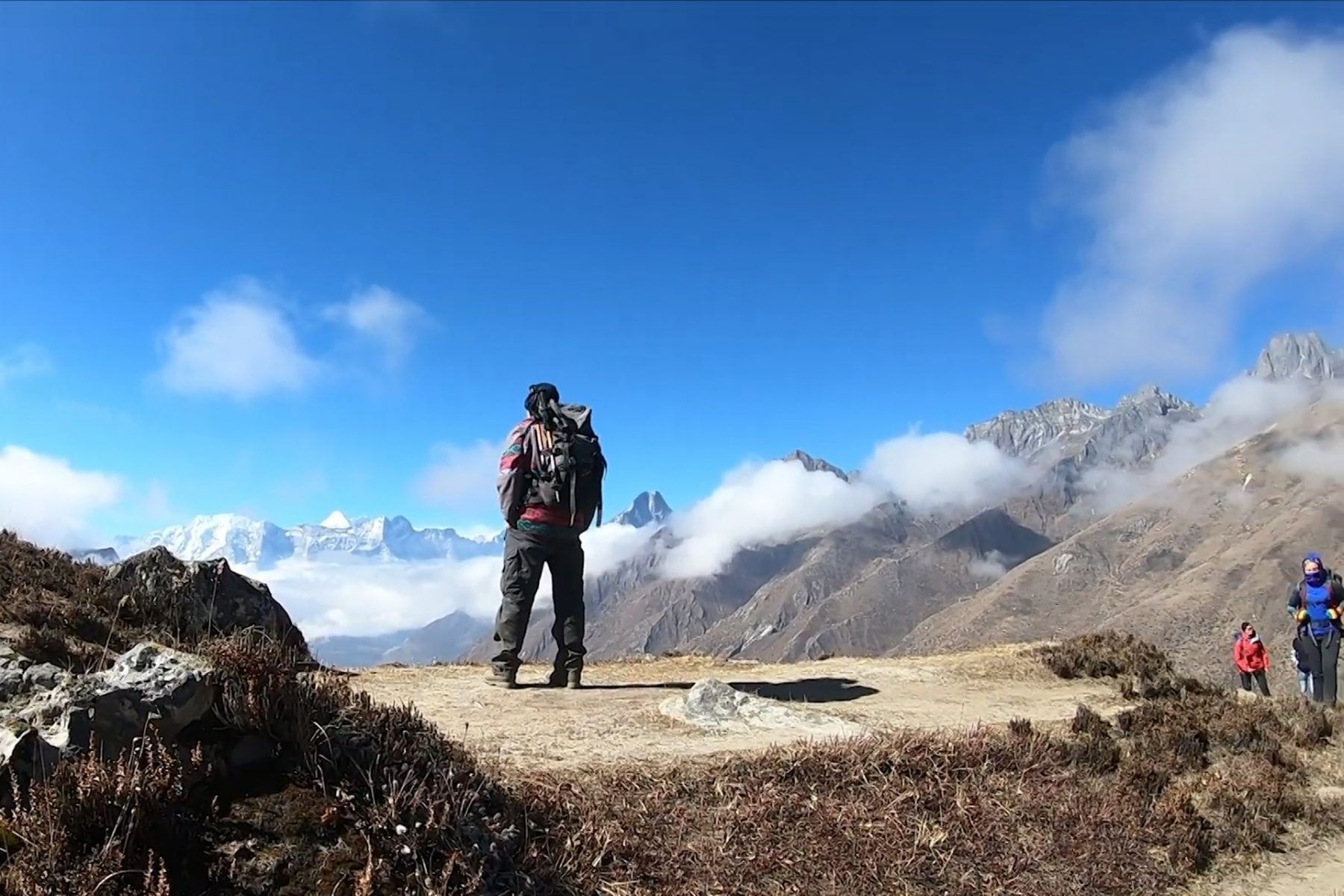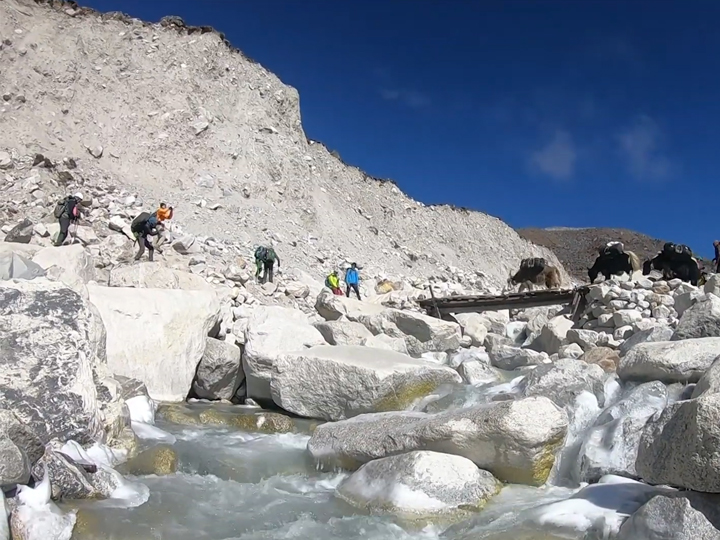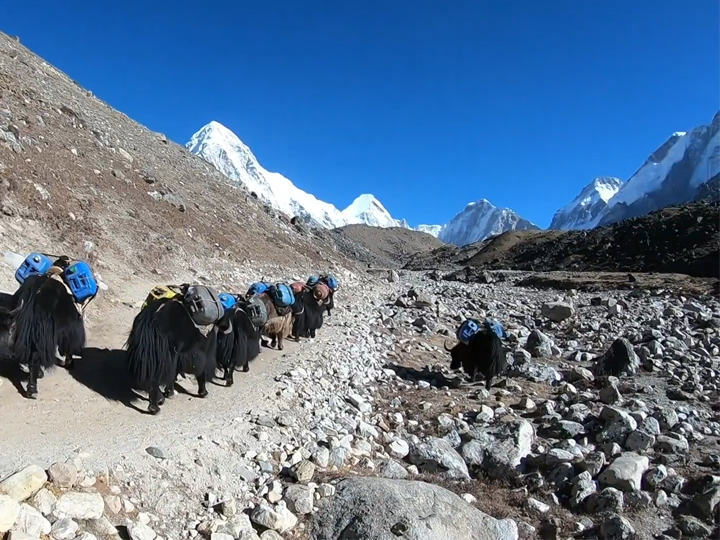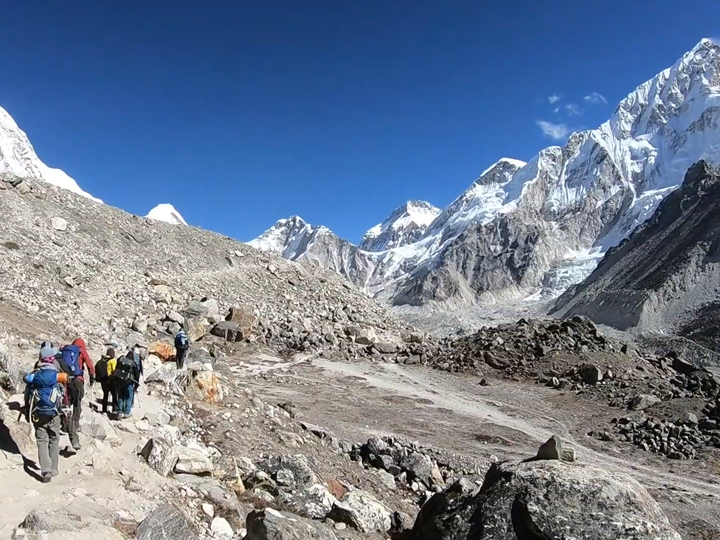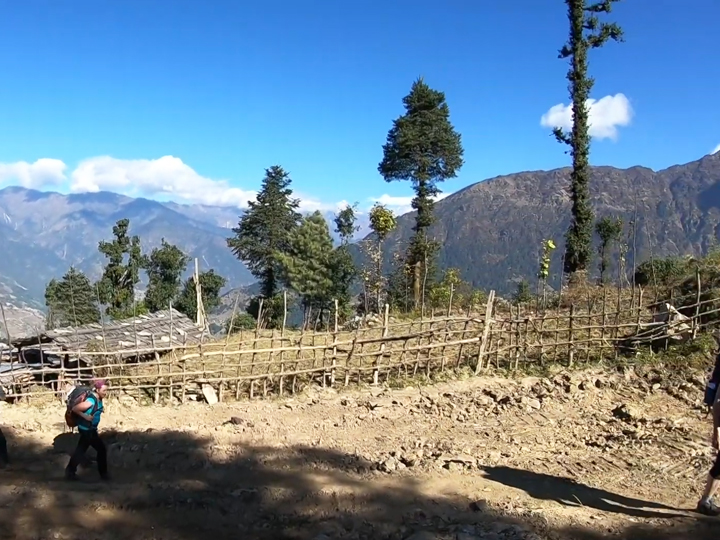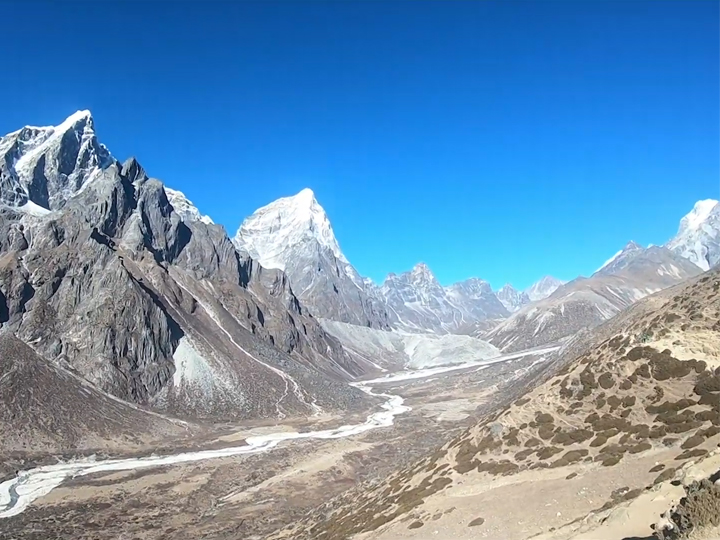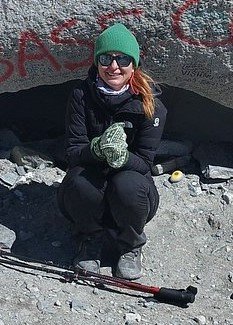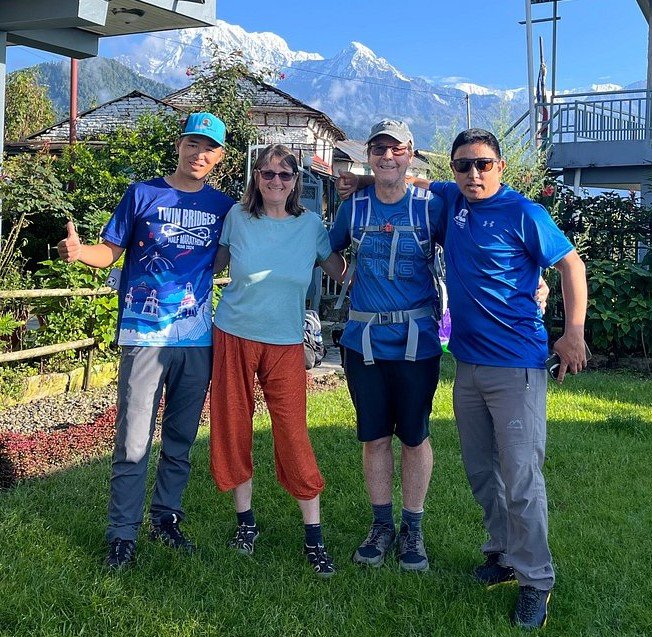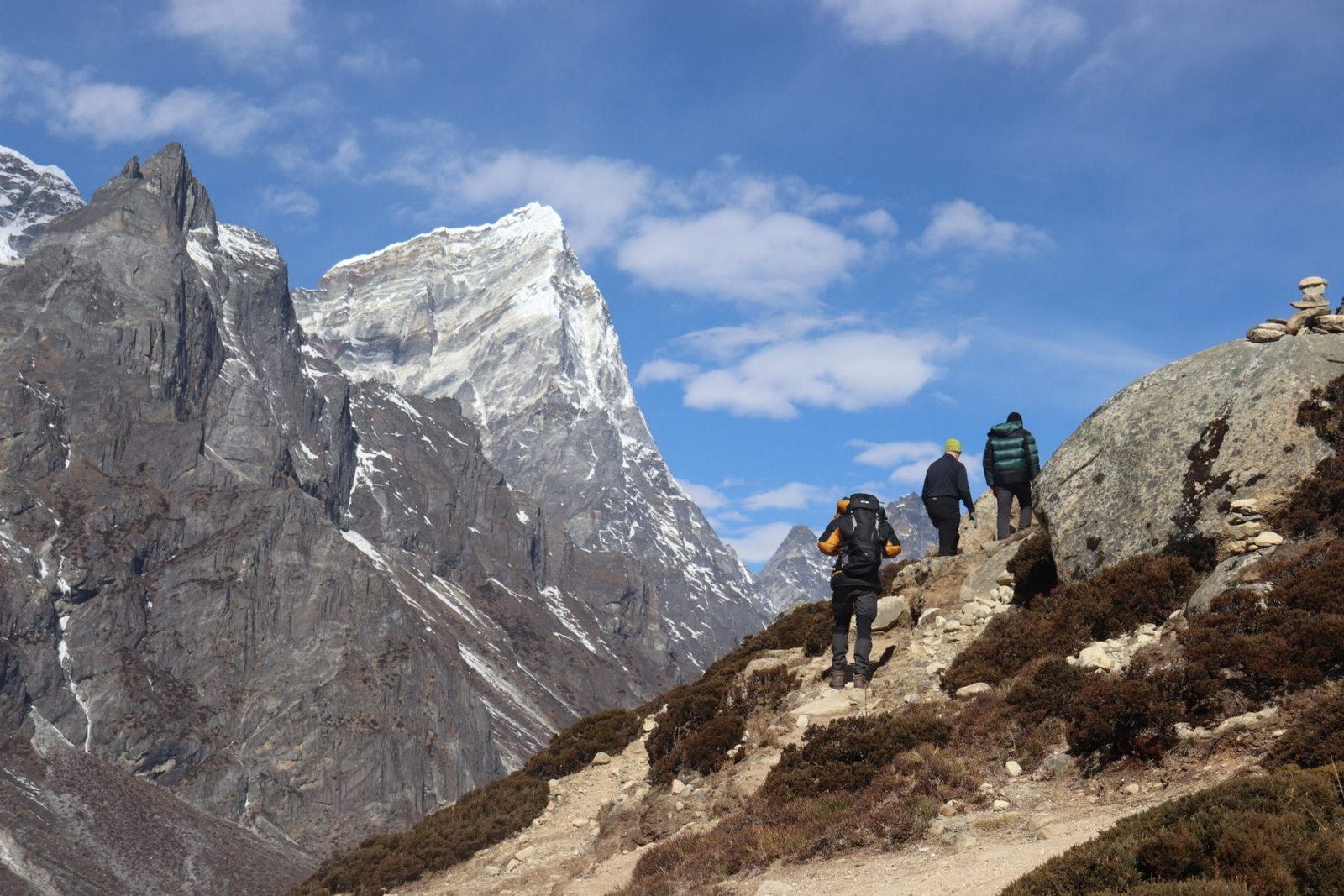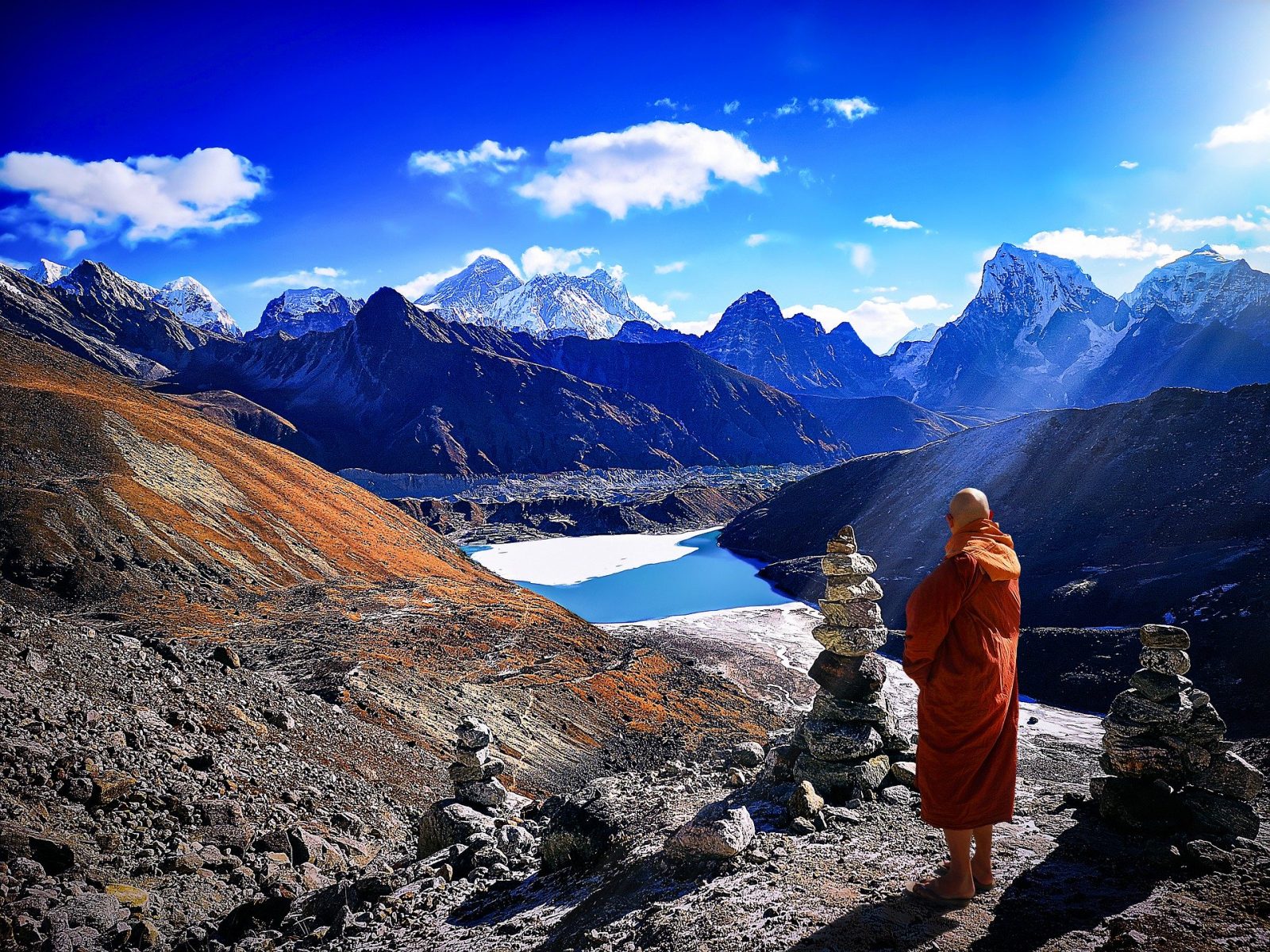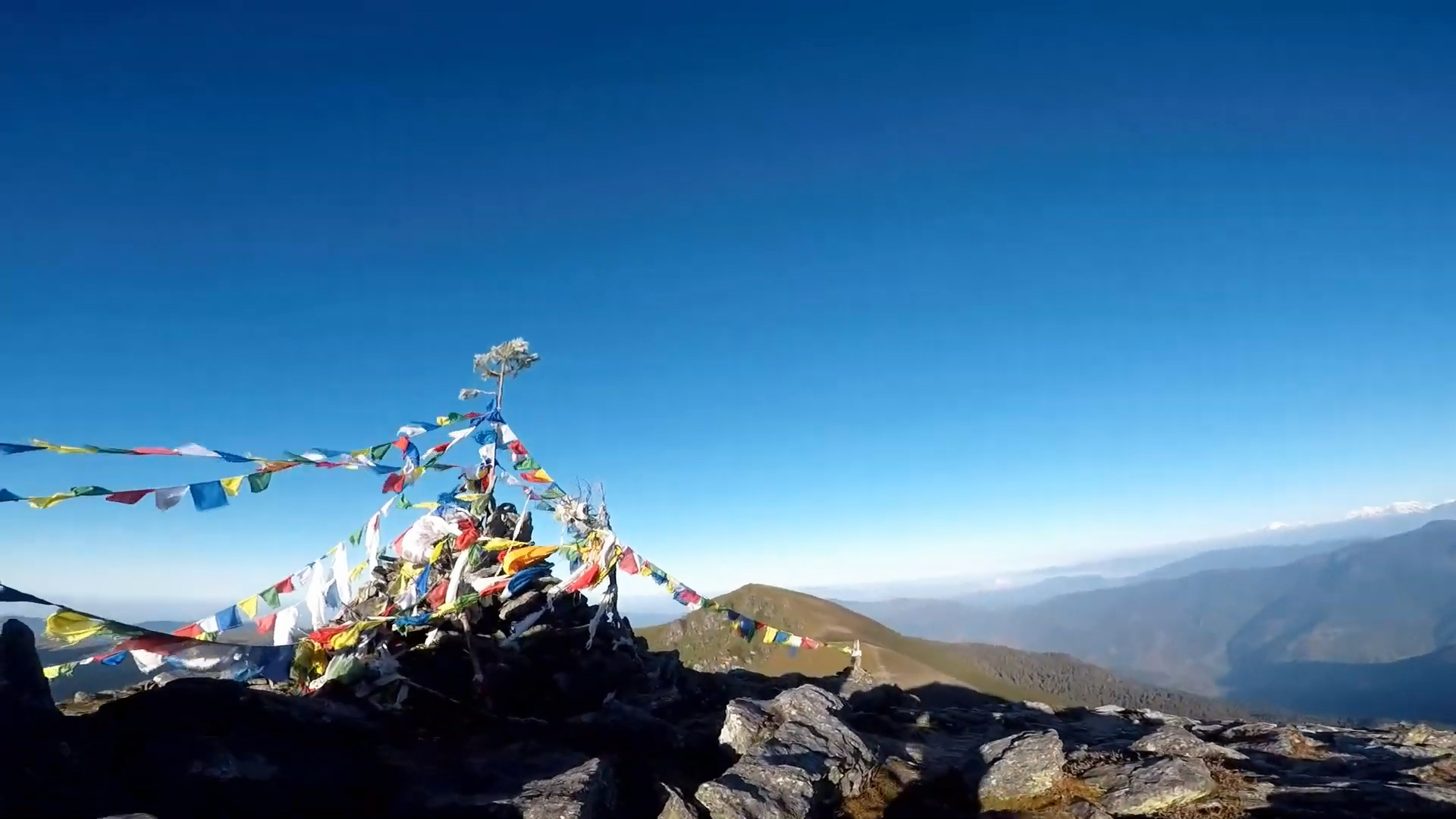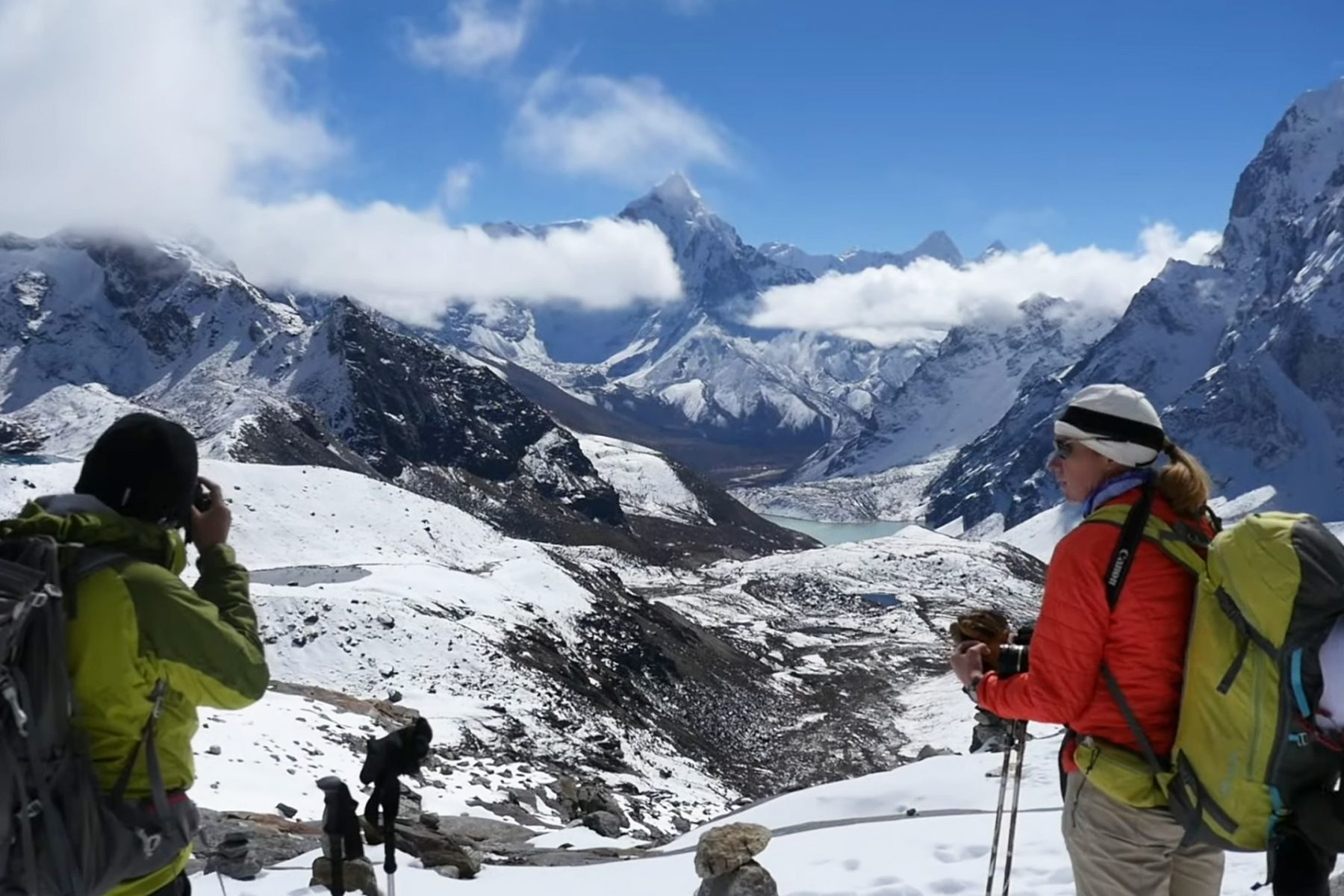Trip Overview
Introduction to Everest Classic Trek
The Everest Classic Trek takes you to the top of the world via the trail taken by the first climbers of Mount Everest, Sir Edmund Hilary and Tenzing Norgay Sherpa. Trekking to the Khumbu region with a flight to Lukla is a normal trip for anyone who wants to visit the homeland of Everest, but via the Jiri route is a different experience. However, trekking this route requires good physical fitness. You must also be prepared to face the challenges of the unpredictable Himalayan terrain.
The Everest Classic Trek is a perfect combination of nature, culture, tradition, and adventure. As you trek along the trail, you will pass through alpine forests and cross glacial rivers, all with breathtaking mountain views in the background. Your journey through this trail includes many ups and downs that are a little difficult. But the rewards of the wonderful nature will keep you going.
Visit the monasteries with flag prayers along the way, which will lift your spirituality. Interacting with locals gives you information about individuals, their culture, and their lifestyle. The Himalayan people have a charming life, and their warm hospitality can make you feel at home. You will be surrounded by beautiful fields, breathtaking landscapes, stunning waterfalls, and pine and rhododendron forests that lead you along this route.
You can also visit: Everest High Passes trek in just 19 Days; packages, Cost, Cheap price, Itinerary,
View of many Mountains
During your Everest Classic Trek, reaching Everest Base Camp and hiking to Kalapattar offers an unforgettable experience. You will enjoy spectacular views of Mt. Everest (8,848m), Lhotse (8,516m), Nuptse (7,855m), Pumori (7,161m), Amadablam (6,856m), and many other majestic Himalayan peaks.
>>>>>>>>>>>>>>>>>>>>>>>>>>>>>>>>>>>>>>>>>>>>>>>>>>>>>>>>>>>>>>>>>>>>>>>>>>>>>>>>>>>>>>>>The Everest Classic Trek is among the best trekking routes, passing through well-developed trails—perfect for those who love photographing the White Himalayas and seek the courage to journey across the high Himalayas’ steep, rocky hills.
Also, look at the best package for Everest, the Best camp in just 14 days, Cheap and Best Prices, Food, Culture, View, and Distance.
Trip Itinerary
Drive Kathmandu to Bhandar (1,520m) – 10 to 11 hours.
Bhandar to Sete (2,575m) – 6 to 7 hours walk.
Sete to Junbesi (2675m) – 6 to 7 hours walk.
Junbesi to Numtala (2,360m) – 6 to 7 hours walk.
Numtala to Khari Khola (2,100m) – 6 to 7 hours walk.
Khari Khola to Surkhe (2,293m) – 6 to 7 hours walk.
Surkhe to Phakding (2610m) – 5 to 6 hours walk.
Phakding to Namche Bazaar (3,440m) – 5 to 6 hours.
Rest in Namche Bazaar.
Namche to Tengboche (3,860m) – 5 to 6 hours walk.
Tengboche to Dingboche (4,260m) – 5 to 6 hours walk.
Dingboche to Lobuche (4910) – 5 to 6 hours walk.
Lobuche to Gorakshep (5,140m) – 3 to 4 hours walk.
Excursion to EBC (5,364m) and back to Gorekshep – 6 to 7 hours walk.
Gorekshep to Kalapatthar (5,545m) and down back to Pheriche(4,210m) – 7 to 8 hours walk.
Pheriche to Tengboche (3860m) – 5 to 6 hours walk.
Tengboche to Khumjung (3,780m) – 4 to 5 hours walk.
Khumjung to Phakding (2,652m) – 6 to 7 hours.
Phakding to Lukla (2840m) – 4 to 5 hours walk.
Fly Lukla to Kathmandu – 45 minutes.
Why not list the price?
Each client's needs may be different. The price of the trip varies according to the size of your group and the service you want. The cost of the trip is calculated according to the type of service and accommodation chosen by our customers.
Each trip is customized to fit the client's needs and group size, so the price of each organized trip is different. Please let us know the service you want and the size of the group. We create trips to suit your taste and travel budget per your requirements. Hope you find our price calculation reasonable according to your needs and preferences.
Frequently asked questions about this trip
How difficult is the Classic Everest Trek?
The difficulty depends on where and how long you want to trek. The short trek is easy while the long trek requires some physical fitness.
What is altitude sickness?
Altitude sickness is normally known as acute mountain sickness. This can happen when people rapidly climb up to an altitude of more than 3000 meters. We ensure minimal risk by adding rest to our trekking itineraries. Most people will feel some effects of altitude, some shortness of breath and possibly light headache, this is normal enough. Acute mountain sickness patients are quite different and usually have a serious headache, sickness, and lose awareness. In almost all possible cases there are sufficient warning signs to take action properly. Descending to a lower altitude is usually enough to prevent any further problems.
What type of accommodation is available during the Classic Everest Trek?
There are mainly tea houses and lodges available for trekking and they are usually made using local materials and are very comfortable. These accommodations are often family-run and usually provide single and double rooms. The dining room is on the ground floor and is often on fire. All food will be cooked in order in the family kitchen. Toilet facilities are sometimes separate and sometimes outside. Most lodges provide mattresses and blankets. It's a good idea to always have a sleeping bag, which can be useful, and perhaps an inflatable pillow.
How long do we walk every day on Classic Everest Trek?
Trekking programs are classified into three different categories: soft, moderate and hard. Soft treks are only about 7 days to 10 days in duration. They generally do not go above 4000 meters; you can expect to walk about 4-5 hours each day. Moderate treks are challenging enough and long treks that go to the high hill country. Physically exhausting, this involves trekking along the cliffs of the mountains for about 6-8 hours. Harder treks are longer treks that go farther away from the general abode of trekkers and tourists. These physically challenging treks involve walking for 7- 9 hours each day.
How much weight do I need to carry on the Classic Everest Trek?
You carry some of your personal belongings, such as warm clothing, water, snacks, sun block, cameras and more. Generally, these items will be lightweight, from 5 to 10kg (10 to 20 pounds). Our porters are available for other heavy goods and for your information one porter would be sharing by two people. The maximum weight carried by one porter is total 20 kg. this means 10 kg. per person is allowed for the trek. In case if you wish to carry more than this weight then you need to hire additional porters.
What is the best time for trekking in Nepal?
October and November are considered as the best times for trekking in Nepal due to dry season. December and January are also considered good times for trekking but it is extremely cold at high altitudes.
Google Reviews
Guest reviews
We made it to Everest Base Camp on the 3rd of November!!! Myself and Dami Sherpa, who was the best company and always extremely helpful. Amazing hike and great experience! Fully recommended!

